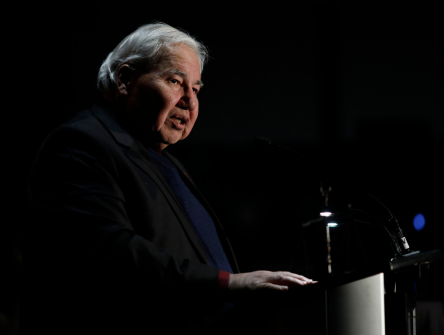Choosing the right practice group leader
Remember, no one is entitled to the position.

How do you choose the right lawyer to lead one of the firm’s practice groups? It’s not an easy question to answer. It can depend on the firm’s strengths and weaknesses, its corporate culture and traditions, and its business goals and approaches to earning revenue.
These factors and more govern how a law firm selects its practice group leaders – and whether these choices are ‘right’ or not.
Here’s how experts suggest tackling the selection process, so that firms get the practice group leaders they need.
Addressing the need
Before even choosing a practice group leader, the law firm leadership needs to ask itself whether they should even have a practice group in a specific area of law.
This seemingly heretical notion comes from former law firm managing partner, noted civil trial lawyer, and Forbes contributor Mark A. Cohen, of Legal Mosaic. “The days of law firms being ‘Big Box Stores’ being all things to all clients are over,” said Cohen. “Success these days lies in specialization. So, you need to ask yourself, for example, “If my firm is known for its expertise in intellectual property cases, should we even have a practice group handling trusts and estates?”
Norman Bacal, author of Breakdown: The Inside Story of the Rise and Fall of Heenan Blaikie, says that practice groups often fail to advance or progress because they don’t address what he calls the three-Cs—communication, culture, and consistency.
“Perhaps the most important one, and the one where you lose credibility, and you lose your strength as a group, and you really weaken the bonds, is when you're not consistent with your values,” he says.
Identifying the best candidate
If it is worth building or retaining a practice group, the next question is how to pick its leader, given the firm’s corporate culture.
“Does the group practice incumbent decide who their successor is?” asks Alexandra Overchuk, a consultant with Phoenix Legal Inc. in Toronto. “Or is a panel struck to search for candidates, and if so, what criteria do they use? Whatever the method, there is no guarantee that any of these approaches will result in the right person being selected to be the next successful group practice leader.”
Bacal says that firm leadership needs to invest in training for its practice group leader candidates in whom they vest authority. Those leaders need skills to set and execute strategy. Otherwise, the practice group will carry on, but without any clear sense of direction.
“The harsh reality is that most practice group leaders are not trained at all in leadership,” he says. “Ultimately, most practice group leaders are caretakers. You do the job for a couple of years and then turn it over the next person who's going to do the job for a couple of years.”
For Cohen, the best choice for the position is someone who not only knows the practice area well from a legal standpoint, but also understands the realities of business and customer service.
“Besides being legally competent, the new practice group leader should be someone who has had extensive direct experience dealing with clients and knows all about their needs, desires, and frustrations,” he told CBA National. “And given all the changes going on in legal services – including the strong push by clients to replace billable hours with predictable fixed fees – they should be open to change, and not tied to the presumption that the firm should continue to operate as it always has.”
What Cohen is saying is that no lawyer should feel entitled to lead a practice group. “I don’t believe the position should necessarily go to the most senior lawyer, or the biggest rainmaker, or the most expert lawyer in this area,” he said. “I think it should be given to someone competent who puts the customer and modern business realities first.”
People who stay siloed in their specific areas of practice, rarely stepping outside their comfort zone, and who have trouble collaborating with others are also poorly suited, says Overchuk. “And if the practice group is seen as a business driver for the firm, then its leader has to be able to drive business as well.”
Getting a break on billable hours
Becoming a practice group leader requires a partner to take on extra responsibilities, which is time that could otherwise be dedicated to billing hours. Should a group practice leader have lower billable hours targets to meet, in recognition of their extra contribution to the firm’s economic well-being?
It all depends on the initial billable hours requirements that the firm has instituted for its partners, says Overchuk. And how much the other partners are willing to give to compensate the group practice leaders for their time.
“I can say, from an accounting world perspective, that practice leaders in that profession have different billable hours expectations, based on what they are required to do,” said Overchuk.
Cohen supports the idea that a practice group leader should be recognized for enhancing client satisfaction, all the while expressing his general preference for fixed fees over the billable hour. “This question presupposes that the client wants billable hours, which an increasing number of clients do not,” he said. “Firms spend too much time on profit-per-partner and too little on net promoter score (customer satisfaction). The latter is the metric that, over time, matters.”


